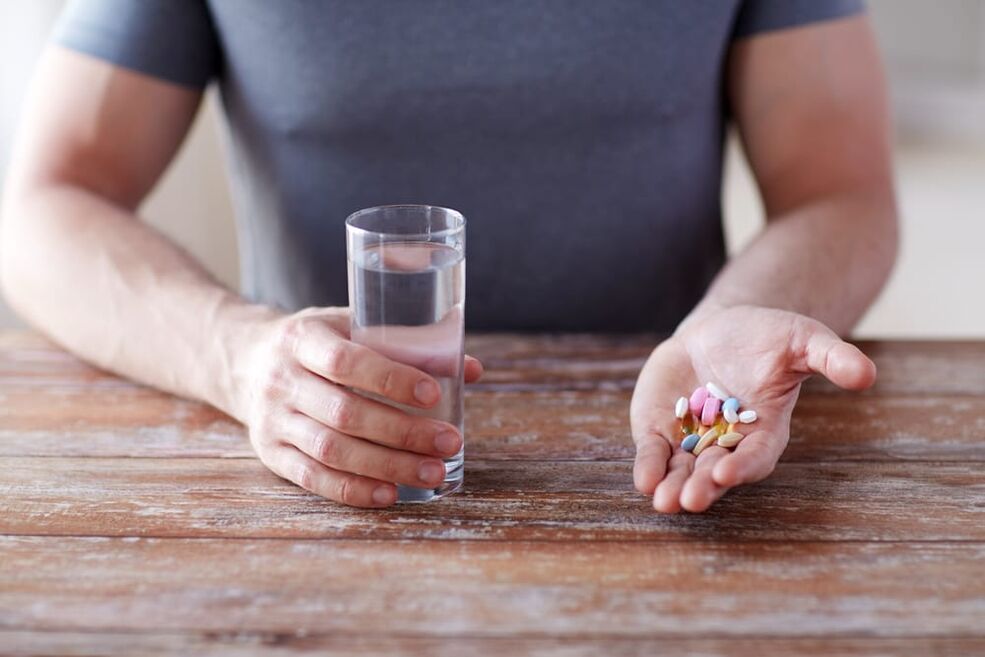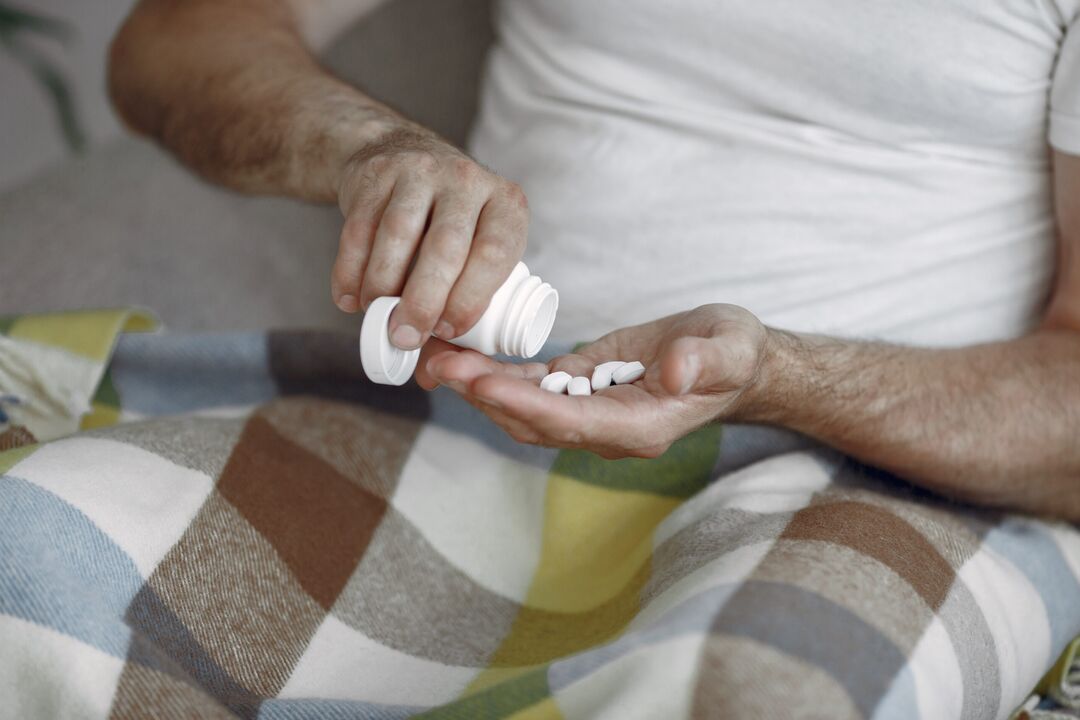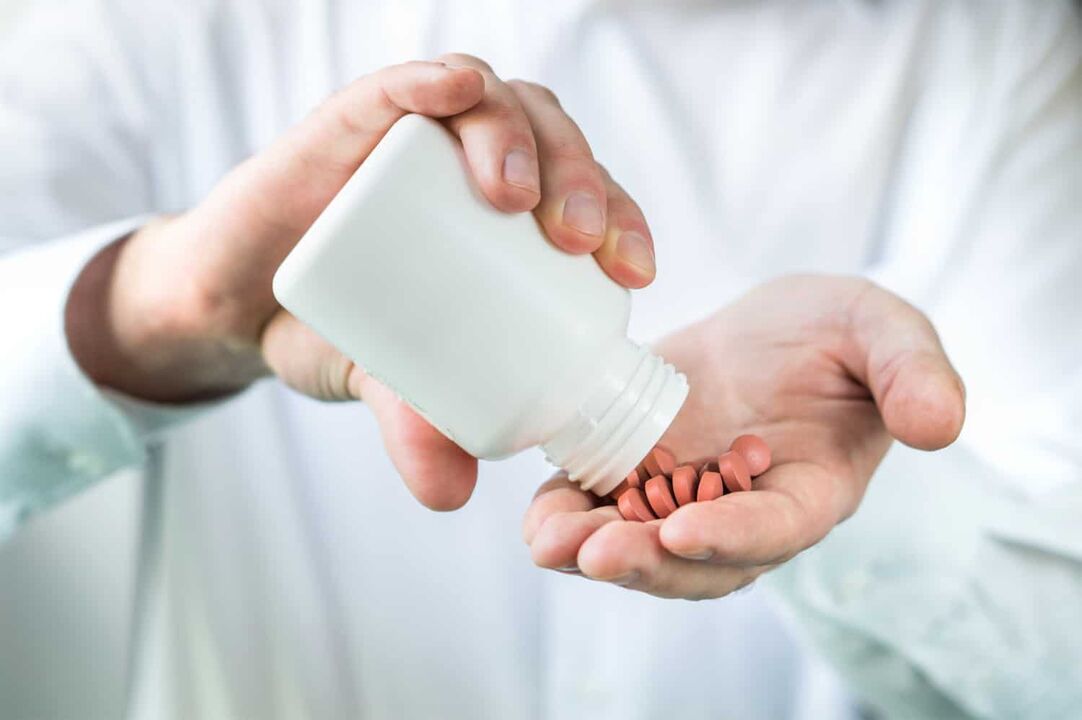The male reproductive system needs nourishment just like other internal organs. At the same time, there are not many vitamins that boost male potency. Let's talk about which ones are more needed than others.
In fact, a healthy man who is sexually mature and generally free of bad habits shouldn't worry about this. If you're eating well and exercising, then chances are everything is in line with your reproductive health.

When should you worry about:
- persistent tiredness, tiredness;
- irritability, mood changes;
- erection problems;
- decreased libido;
- Overweight and loss of muscle mass;
- swollen, sore, and sensitive nipples;
- Painful urination, burning pain in the groin and penis.
If this is the case, you can go directly to a urologist-andrologist. He will most likely suggest the necessary biological additives. Be sure to ask your doctor about the necessary medicines and their dosages!
Important Vitamins for Male Potency
Here, we list those substances that really play an important role in men's health.
Zinc
Recommended Daily Allowance: 11 mg.
Casanova has a reputation as a womanizer for a reason: he allegedly eats two dozen oysters a day. What's so special about them? Plenty of zinc.
Today, it has been shown that men who consume adequate amounts of this mineral have greater libido and increased sexual performance. The truth is that testosterone, the main male hormone, is produced in the presence of zinc.
In a study conducted by a well-known company, men who were noted to be deficient in zinc doubled their testosterone levels after taking a special supplement for 6 months.
Positive effects of zinc supplementation were also reported during an additional 8-week follow-up.
What does it mean? If there are no more obvious symptoms, it is likely that the cause of the potency problem is due to a lack of zinc. But it's best to get tested and get a doctor's advice.

Vitamin B12
Recommended Daily Intake: 2. 4 mcg
Deficiencies of B vitamins (also known as cyanocobalamin) have been linked to erectile dysfunction. This is illustrated, for example, in a recent University report.
The exact reason has not been explained, but B12 is important for overall health because it is involved in cell metabolism and hematopoiesis - both of which are extremely important for spermatogenesis and normal erection.
L-Arginine
This amino acid has an important function: L-arginine is metabolized to nitric oxide (NO), which in turn plays an important role in vasodilation - the mechanism by which blood vessel walls relax. It is with the participation of NO that an erection occurs.
Vitamin D
Recommended Daily Amount: 600 IU
Solar vitamins are sure to brighten up your sex life, both for men and women.
A 2014 study found that about two-thirds of 143 men diagnosed with erectile dysfunction had low levels of vitamin D. People with severe ED had about 24% lower levels of vitamin D compared to those with mild ED.
The current hypothesis is that vitamin D deficiency causes poor vascular tone and nitric oxide deficiency.
Vitamin C
The main "immune" vitamins actually have multiple functions in the body. Among other things, he is involved in spermatogenesis, increasing the concentration of sperm in the semen.
However, making up for the lack of vitamin C is simple: eat as many raspberries, strawberries, blueberries, and fruit as you can. They contain anthocyanins - polychromes that reduce oxidative stress and inflammation in blood vessels.
magnesium
Recommended Daily Allowance: 400 mg.
A mineral that is very important for cardiovascular health, muscle development, which is necessary for anyone at any age.
A study by Turkish scientists compared the reproductive health of athletes and inactive individuals. As a result, take 22 mg. Magnesium per kilogram of body weight for 4 weeks increased testosterone levels in both groups.
There are two other studies: One looked at the effects of magnesium on older men (65+) and younger groups (18 to 30). Both have independently concluded that testosterone levels (and therefore muscle strength) correlate with magnesium levels in the body.
folic acid
Recommended Daily Intake: 400 mcg

It is widely used by women in early pregnancy. Men need it mainly to improve the quality of the seeds. A lack of folic acid has been established to cause a large number of sperm chromosomal abnormalities. Therefore, it is an important trace element for the treatment of male infertility and weak medicinal effect.
L-citrulline
This amino acid acts like a pill and relaxes the smooth muscles in the walls of blood vessels. In the body, it is converted into another organic compound, arginine, which is involved in blood circulation.
For example, watermelon contains a lot of citrulline, but it is sometimes recommended for men to drink it in supplement form. The main problem with this substance is that the exact dose that will affect reproductive health has not been established.
Quercetin
This bioflavonoid has a powerful antioxidant effect on the body. Among other things, it blocks the production of 5-lipoxygenase, an enzyme that removes some of the testosterone circulating in the blood.
In theory, everything is clear, but in practice, quercetin still falls under the category of dietary supplements because the therapeutic effects are not entirely clear.
selenium
Recommended Daily Intake: 75 mcg.
Liver, oysters, and Brazil nuts contain high amounts of this mineral, which is needed for men's health primarily because of its involvement in the production of sex hormones.
Let's emphasize that you need very little, but even minor defects can be detrimental to reproductive health.
A study by American scientists on infertility and low testosterone found that selenium levels were consistently lower in this group of patients compared to the fertile group. Taking this mineral increases the chances of a successful pregnancy by an average of 56%.
Another study involving 69 infertile men looked encouraging: Participants improved sperm motility.
Vitamin A
Recommended Daily Allowance: 900 mcg.
Retinol (vitamin A) and carotenoids have one important property: They also improve sperm motility. In the men who ate a lot of carrots during the study period, the scientists increased their sperm count by about 6. 5-8%.
D-Aspartate
Amino acids are often our healthy superhero team. Our muscles, internal organs, blood cells, and hormones are all built from these "bricks. "One of them is D-aspartic acid. It is also involved in the synthesis of testosterone, improving erections and increasing libido, as well as sperm quality.
niacin
Recommended Daily Allowance: 16 mg.
Since we're talking about libido, we have to mention niacin, aka vitamin B3. It is rich in fish, seafood, beef and liver.
Niacin appears to play an important role in libido. At least that's what the research says. It was found that the less potent men who took it as a supplement had significantly higher rates of sexual success compared to the placebo group.
Vitamin E
Recommended Daily Intake: 15 mg.
We need vitamin E mainly for circulation and immunity. Also, it helps absorb vitamin A and many other substances. In animal studies, it has shown its importance for libido and testosterone production.
capsaicin
The substances that make the peppers hot are also useful for potency. In animal studies, capsaicin had an effect on the size of male reproductive organs. Also, it helps reduce the fat layer in the belly, which is very important for potency.
In an observational study in France, it was noted that spicy foods also affected testosterone levels. So if you weren't too keen on spicy food before, it might be time to fall in love with them. Of course, if there are no contraindications, such as ulcers or gastroesophageal reflux disease.
How to choose the potency of vitamins
Therefore, we found that men's health requires several substances:
- spermatogenesis activators;
- enhance immunity;
- affect the health of the cardiovascular system;
- Improve the conduction of nerve impulses.
However, a multivitamin does not need to include all of these substances at all. Let's repeat what we said at the beginning: your doctor should choose the most potent vitamins. The selection should be based on the diagnosis and nature of the problem, as well as the test results.
Furthermore, vitamins are in many cases only part of the treatment and require treatment with a completely different drug.


























